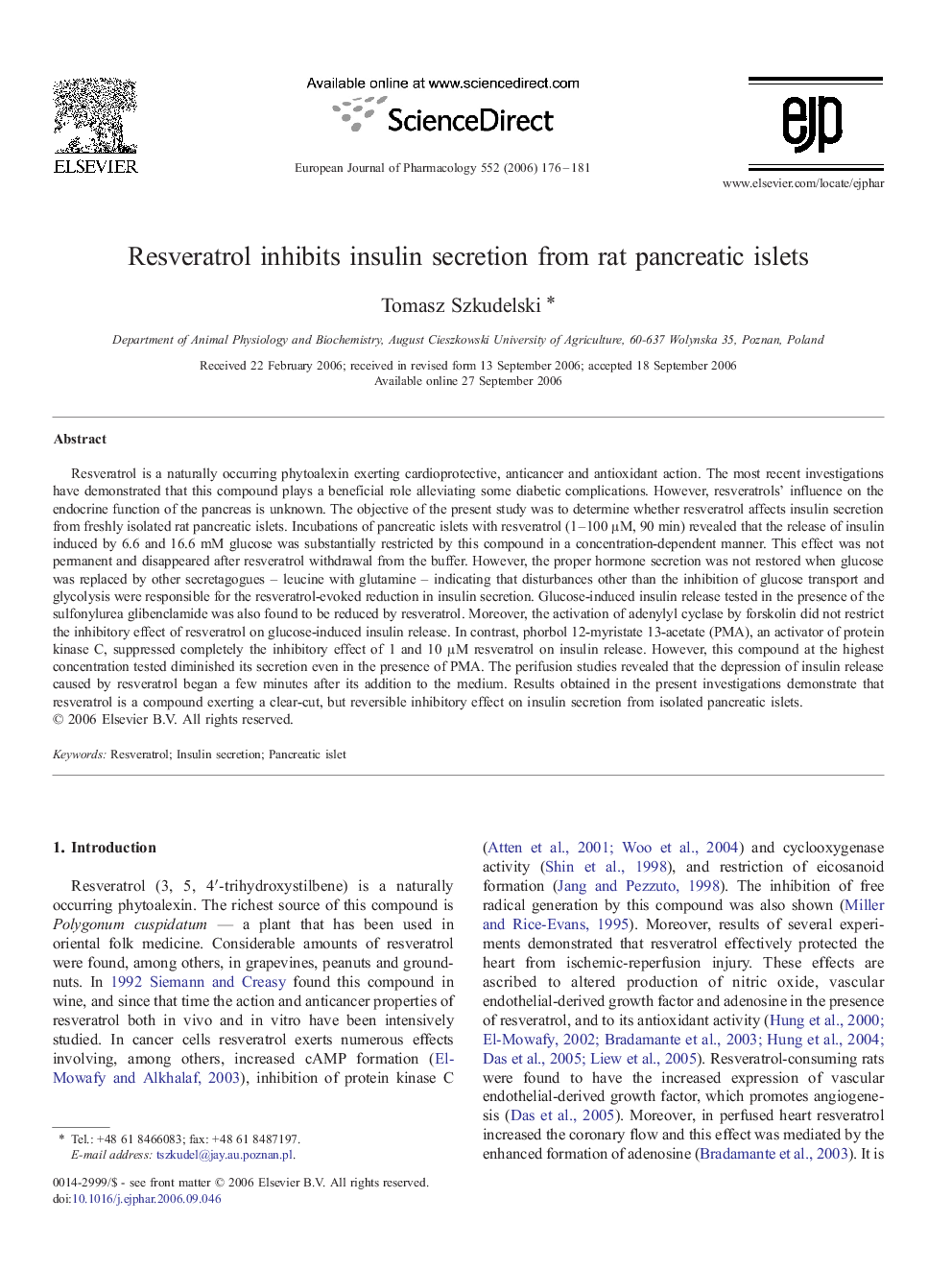| Article ID | Journal | Published Year | Pages | File Type |
|---|---|---|---|---|
| 2536704 | European Journal of Pharmacology | 2006 | 6 Pages |
Resveratrol is a naturally occurring phytoalexin exerting cardioprotective, anticancer and antioxidant action. The most recent investigations have demonstrated that this compound plays a beneficial role alleviating some diabetic complications. However, resveratrols' influence on the endocrine function of the pancreas is unknown. The objective of the present study was to determine whether resveratrol affects insulin secretion from freshly isolated rat pancreatic islets. Incubations of pancreatic islets with resveratrol (1–100 μM, 90 min) revealed that the release of insulin induced by 6.6 and 16.6 mM glucose was substantially restricted by this compound in a concentration-dependent manner. This effect was not permanent and disappeared after resveratrol withdrawal from the buffer. However, the proper hormone secretion was not restored when glucose was replaced by other secretagogues – leucine with glutamine – indicating that disturbances other than the inhibition of glucose transport and glycolysis were responsible for the resveratrol-evoked reduction in insulin secretion. Glucose-induced insulin release tested in the presence of the sulfonylurea glibenclamide was also found to be reduced by resveratrol. Moreover, the activation of adenylyl cyclase by forskolin did not restrict the inhibitory effect of resveratrol on glucose-induced insulin release. In contrast, phorbol 12-myristate 13-acetate (PMA), an activator of protein kinase C, suppressed completely the inhibitory effect of 1 and 10 μM resveratrol on insulin release. However, this compound at the highest concentration tested diminished its secretion even in the presence of PMA. The perifusion studies revealed that the depression of insulin release caused by resveratrol began a few minutes after its addition to the medium. Results obtained in the present investigations demonstrate that resveratrol is a compound exerting a clear-cut, but reversible inhibitory effect on insulin secretion from isolated pancreatic islets.
